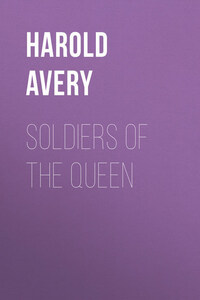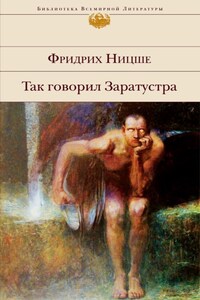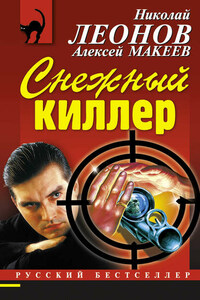"They shouldered arms, and looked straight before them, and wore a splendid uniform, red and blue." – The Brave Tin Soldier.
The battle was nearly over. Gallant tin soldiers of the line lay where they had fallen; nearly the whole of a shilling box of light cavalry had paid the penalty of rashly exposing themselves in a compact body to the enemy's fire; while a rickety little field-gun, with bright red wheels, lay overturned on two infantry men, who, even in death, held their muskets firmly to their shoulders, like the grim old "die-hards" that they were. The brigade of guards, a dozen red-coated veterans of solid lead, who had taken up a strong position in the cover of a cardboard box, still held their ground with a desperate valour only equalled by the dogged pluck of a similar body of the enemy, who had occupied the inkstand with the evident intention of remaining there until the last cartridge had been expended.
Another volley swept the intervening stretch of tablecloth, and the deadly missiles glanced against the glass bottles and rattled among the pencils and penholders. Two men fell without a cry, and lay motionless with their heads resting on the pen-wiper.
"Look here, Barbara, you're cheating! You put in more than two peas that time, I know."
It was the commander-in-chief of the invading forces who spoke, and the words were addressed to a very harum-scarum looking young lady, who stood facing him on the opposite side of the table.
"How d'you know I did?" she cried.
"Because I saw them hit. There were three at least, and the rule was that we weren't to fire more than two at a time."
"There weren't three, then," retorted the girl, laughing, and shaking back her tangled locks with an impatient movement of her head. "There were six! Ha! ha! I put them all in my mouth at once, and you never noticed."
"Oh, you little cheat!" cried the boy. "I'll lick you."
The threat had evidently no terrors for her. She danced wildly round the table, crying, "Six! six! six!" and when at length he caught her, and held her by the waist, she turned round and rapped him smartly on the head with a tin pea-shooter.
At this stage of the proceedings a lady, who had been sitting in a low chair by the fire, looked up from her book.
"Come, come!" she said pleasantly. "I thought the day was past when generals fought single combats in front of their men. Isn't that true, Valentine?"
The tussle ceased at once; the boy released his sister, who laughed, and shook herself like a small kitten.
"She's been cheating!" he exclaimed.
"I fired six peas instead of two!" cried the culprit, evidently delighted with her little piece of wickedness. "And I knocked over two of his silly old soldiers."
A girl, somewhat older than Valentine, though very like him in face, laid down her needlework, saying, with a quiet smile, —
"All's fair in love and war, isn't it, Barbara?"
"Yes, of course it is," answered her sister.
"It's not – is it, aunt?" retorted the boy.
The lady rose from her chair, and, with a merry twinkle in her eye, came over to the table.
"Well, we'll hope not," she said. "Why, Val, I should have thought you were too old to play with tin soldiers; you were fourteen last birthday."
"I don't think I shall ever be tired of playing with them – that is," he added, "until I'm with real ones."
"Queen Mab," as the children sometimes called her, was below the medium height, and as she stood by her nephew's side his head reached above the level of her shoulder. She glanced over the mimic battlefield, and then down at the bright, healthy-looking young face at her side, with its honest grey eyes and resolute little mouth and chin. The old words, "food for powder," came into her mind, and she laid her hand lightly on his rumpled hair.
"So you still mean to be a soldier?"
"Yes, rather; and father says I may."
Miss Fenleigh was silent for a moment. "Ah, well," she said at length, "a happy time will come some day when there will be no more war; and I think it's about time this one ceased, for Jane will be here in a minute to clear the table for tea."
If Valentine or either of his sisters had been asked to describe their Aunt Mabel, they would probably have done so by saying she was the best and dearest person in the world; and accepting this assertion as correct, it would be difficult to say more. Her house also was one of the most delightful places which could well be imagined; and there, since their mother's death, the children spent each year the greater part of their summer holidays.
It was a dear, easy-going old house, with stairs a little out of the straight, and great beams appearing in unexpected places in the bedroom ceilings. There were brass locks with funny little handles to the doors, and queer alcoves and cupboards let into the walls. There was no fusty drawing-room, with blinds always drawn down, and covers to the chairs, but two cosy parlours meant for everyday use, the larger of which was panelled with dark wood which reflected the lamp and firelight, and somehow seemed to be ready to whisper to one stories of the days when wood was used for wall-paper, and when houses were built with sliding panels in the walls and hiding-places in the chimneys. The garden exactly matched the house, and so did the flowers that grew in it – the pink daisies, "boy's love," sweet-williams, and hollyhocks, all of which might be picked as well as looked at. Visitors never had a chance of stealing the fruit, because they were always invited to eat it as soon as it was ripe, or even before, if they preferred.










